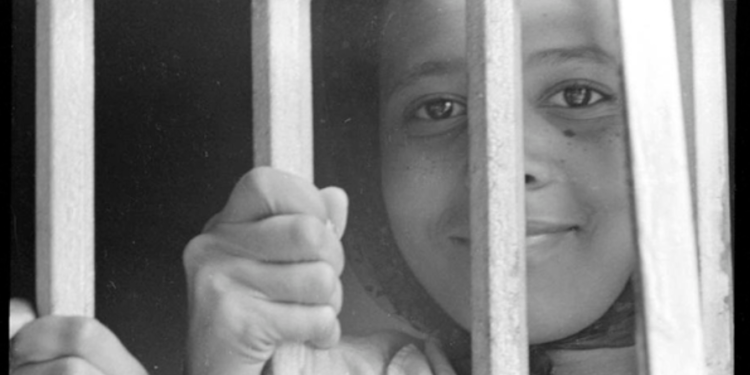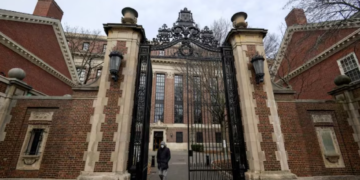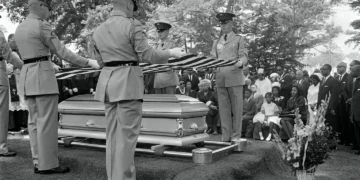Dec 15, 2024 Story by: Editor
Storytelling does more than shed light on important events—it connects history to the present, offering inspiration for a brighter future. Imagine being a teenage Black girl in 1963, marching for justice, only to be arrested and confined to a cell without beds, a bathroom, or sufficient food. Could you find the strength to keep fighting for your freedom?
Felicia D. Henderson, a Hollywood showrunner, has made her directorial debut with The Rebel Girls, a film now vying for an Oscar nomination. This multiple film festival award winner takes audiences to Americus, Georgia, highlighting a pivotal yet underrecognized moment in history. The story, inspired by real events during the Civil Rights Movement, captures the courage of young girls who revitalized the struggle for justice with magical thinking, friendship, faith, and determination.
“No one has the power to control your mind,” Henderson remarked in a Zoom interview. “It’s contemporary in that we are about to approach a very scary four years. But at the same time, what this film tells us, and what’s important, is that we must look toward the future. Just because we find ourselves here doesn’t mean that the here, the scary, controls us. This story of hope is saying, ‘We’re strong. We can make it. We will get through this.’ We must, just like those girls did; they went inside of their heads. Their bodies were imprisoned, but in their heads, they were dreaming.”
The story of the Leesburg Stockade first gained widespread recognition in 2016 when a friend shared it with Henderson. It was the first time the seasoned Hollywood producer had heard about the event.
In the 1960s, 15 young Black girls aged 10 to 15—though some survivors recall there being closer to 30—were arrested for peacefully protesting segregation laws. Their demonstration was met with violence as law enforcement officers attacked and detained them.
The girls were held for 60 days without formal charges in the Leesburg Stockade, a decaying Civil War-era building hidden in the woods of Georgia. Their parents, just 20 miles away, were unaware of their location or the horrific conditions they endured.
Henderson immediately felt compelled to bring this story to light. She envisioned it as a television series and connected with two survivors, Lulu Westbrook and Carol Seay, securing the rights to their life stories.
With over three decades of industry experience on projects like Soul Food and Empire, Henderson leveraged her network to assemble a top-tier team. Producer Liesl Wilke was the first to support the project financially, inspiring Henderson to build her crew. Her collaborators included composer Kurt Farquhar, casting director Leah Daniels Butler, showrunners Mara Brock Akil and Caroline Williams, and Dr. Bernice A. King, daughter of Dr. Martin Luther King Jr.
While the story focuses on the young girls’ survival, this venture marked a new chapter in Henderson’s career. Due to Hollywood writers and actors’ strikes, she pivoted from creating a series to producing a short film, capturing the essence of the girls’ harrowing experience.
“A lot of times we don’t ask because, for whatever reason—whether it’s pride or not wanting to impose—we don’t want to reach out for help,” Butler said. “I watched Felicia do it, and everyone she asked said ‘yes.’ That’s a testament to who she is.”
Despite their crucial role in the Civil Rights Movement, these young “child warriors” had never been featured in mainstream media before. Henderson cast young actors for the film, many of whom were acting for the first time.
The film transports viewers through the girls’ memories, the harsh realities they faced, and the daydreams that kept them resilient during their 60-day imprisonment. Kyanna “Keekee” Simone portrayed Bertha, an aspiring boxer who dreamed of championship glory.
“The entire time I was filming, I had the flu, which helped me get into the character of Bertha,” Simone explained. “Bertha is one of those girls whose activism wasn’t at the forefront of her mind at the time. She found herself in a position where she had to fight for herself and the other girls in that terrible situation. Being so sick helped me connect with her struggle. After filming, a part of Bertha stayed with me, pushing me to strive, fight, and speak up.”
As women continue their fight for equality, it’s essential to share the stories of those who have been historically underrepresented. These narratives amplify silenced voices, inspiring others to persevere during challenging times.
Dr. King stated, “My hope is that The Rebel Girls will receive the funding to be developed as a feature film or TV series so that those in this generation who are fearful of the times we are living in can see themselves through the eyes of those young girls and be empowered to work together for freedom and draw inspiration from a previous generation that had the strength, courage and resilience to resist injustice nonviolently.” Source: Forbes

















